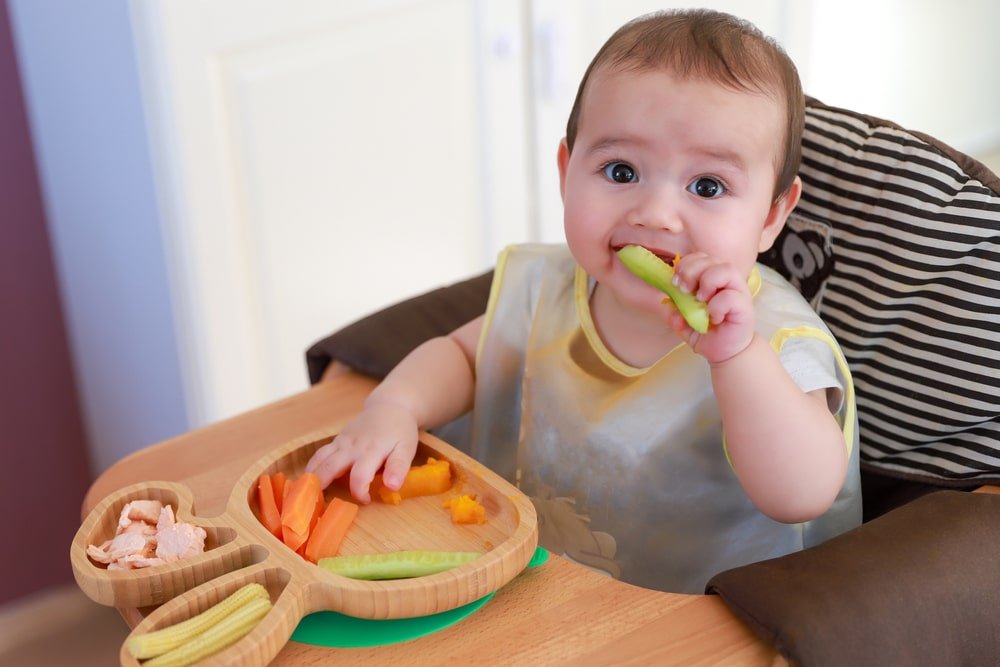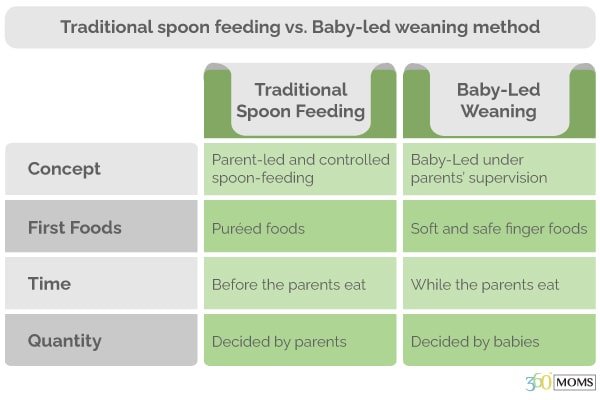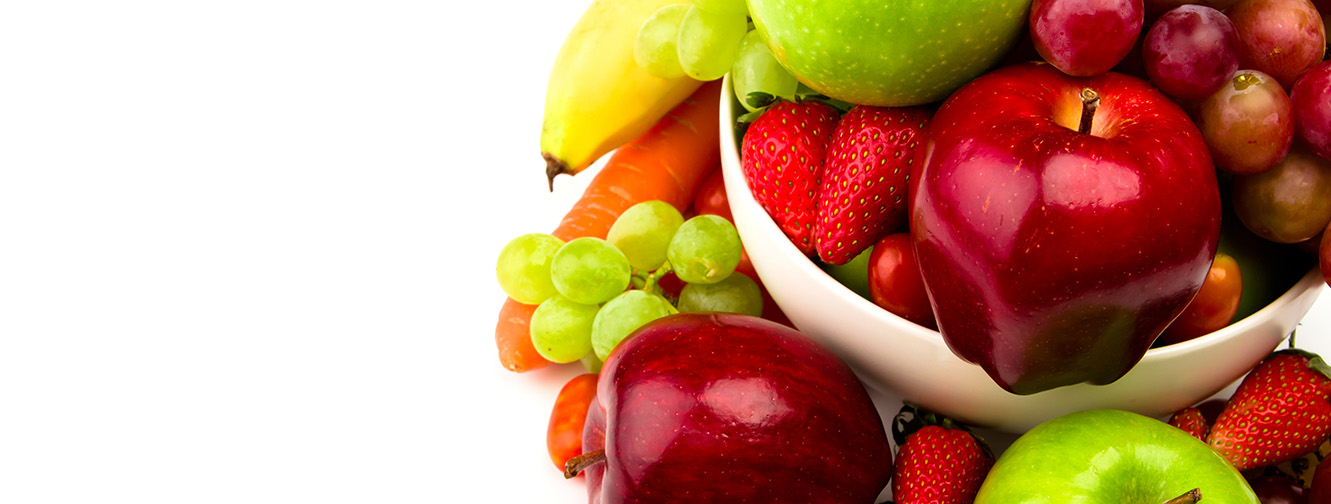Baby-led weaning: A revolutionary method

Imagine eating with your baby, at the same time, at the same table. Yes, right, your baby, not a preschooler!
You’d think that such a concept is farfetched since the conventional eating method, once you start introducing solid food to your baby, is to feed them with a spoon.
Traditionally, parents start feeding their babies soft pureed food starting from the age of 6 months, which gradually transitions to mashed then chopped food. You’d hold the spoon and act like it’s a plane to convince your child to eat.
But what would it feel like if your baby has their own safe food, where they are free to explore and eat it as they desire?
That is what is known as Baby-Led Weaning (BLW)
Baby-Led Weaning (BLW) is a new type of baby feeding method that was first introduced 15 years ago as an alternative feeding method and widely adopted in several countries like the UK, Canada, and New Zealand.
Weaning, which traditionally constituted introducing solid food (puree) to the baby at six months, after being exclusively breastfed, is now “baby-led” where they have the freedom to self-feed under the parents’ supervision. The baby explores, enjoys, and tastes healthy, nutritious meals that the parents provide. Fair deal!
The weaning period is of high impact on the infants’ life in both the short and the long term, as it can affect his/her choice of food, eating patterns and habits, and weight. Therefore, we will discuss the concept of BLW to identify its advantages, differences, potential risks, and recommendations.
How is BLW performed?
It’s simple, you as a parent decide the selection and form of food to offer to your baby, then give them the freedom to eat through the type and method they desire. If you still like to spoon-feed your infant, you can fill the spoon then give it to your child to eat by themselves.
However, don’t forget to diversify the food choices offered so that your baby gets variety of nutrients.
What age to begin BLW?
The World Health Organization (WHO) states that a baby should start trying complementary food at the age of 6 months, after being exclusively breastfed for the first six months of his/her life.
Therefore, BLW is recommended to begin at the age of 6 months since this is the age when the baby is developing crucial motor and oral skills giving him/her the ability to self-feed.
What is the difference Between BLW and Traditional Spoon Feeding?
As many parents are used to the conventional feeding method, here are the differences of baby-led weaning.
 What are the benefits of BLW?
What are the benefits of BLW?
BLW supports autonomous feeding, and this generates several benefits, which include:
- The babies have the chance to eat with their families.
- Babies learn to eat upon their own hunger, pace, and needs and learn to stop eating when they are full.
- Babies get the opportunity to discover several types of food, flavours, colours, and textures and decide what kinds of food they like.
And much more.
Is BLW risky?
Along with the several benefits of BLW, some concerns arise that include messiness, food waste, and even weight problems.
According to researchers, BLW babies are subjected to more saturated fats, less essential vitamins like iron, zinc, B12, and fewer energy foods.
Also, since infants are more likely to eat similar foods as their parents, they may be subject to more unhealthy patterns; if their parents are not following a balanced, nutritious meal plan. This could lead to serious health conditions like anemia and obesity.
However, these concerns only exist when no proper supervision exists. Therefore, to make sure that BLW is properly applied, first supervise all your baby’s meals and be empowered by healthy recipes and useful guidelines of age-appropriate and balanced meals for babies.
This includes choosing the right food for your child, seating him/her correctly, looking out for possible allergens and choking hazards, and keeping an eye on the infant.
BLW is a convenient and effective alternative to spoon-feeding that can help your baby grow into an adventurous, independent eater.



















